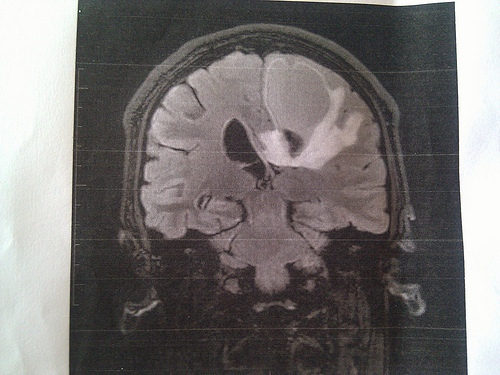We run our website the way we wished the whole internet worked: we provide high quality original content with no ads. We are funded solely by your direct support. Please consider supporting this project.

Why Did God Heal or Not?
In 1996 a 27-year-old man in my church named David was diagnosed with an inoperable brain cancer. The doctors decided to send David to the Mayo Clinic to receive some experimental treatments on the slim hope these might at least prolong his life. The night before David left, I and a dozen other people went over to his house to pray. For over two hours we engaged in fervent warfare prayer on his behalf, revolting in Jesus’s name against the cancer and anything in the spirit realm that might be involved in it.
Two days later I received an elated call from David. The doctors at the Mayo Clinic could not find any trace of cancer!
Of course, the mayo clinic staff insisted that David’s local doctors must have misread his brain scans, but his local doctor said this wasn’t possible. The mystery was never resolved, which was fine with us. We just praised God that he was set free from a life-threatening infirmity that ultimately is traceable back to Satan’s oppressive regime.
But we must be honest. As impressive as this event was, it’s possible nothing supernatural occurred. Despite their insistence to the contrary, David’s doctors may have misread his brain scans, and it’s possible David’s cancer went into “spontaneous remission.” But these seem very unlikely. And since I have good reason for believing Jesus is the son of God and that his followers are supposed to be able to affect things through the power of prayer, I feel justified calling David’s healing miracle.
Now, in the interest of full disclosure, and to illustrate how arbitrary life sometimes this, I’m compelled to add the sad fact that three years after his miraculous healing, David’s brain cancer returned. And this time he wasn’t healed.
I admit that this is theologically disturbing. But I don’t think this invalidates the miracle. For all we know, Lazarus may have died three years after Jesus raised him from the dead, perhaps from the very disease that killed him the first time (John 11:1–46). All healings this side of heaven are temporary signs of the coming age when all forms of infirmity will be permanently overcome. Until the kingdom comes in its fullness, we will all eventually die. The very last enemy that will be overcome is death (1 Cor 15). So David’s death doesn’t undermine the genuineness of the healing.
But it does illustrate how mysterious and seemingly arbitrary life is. Why was healing prayer effective in one instance but not in another, when we were revolting against the same illness in the same person? It’s impossible to say. Yet, as I said in yesterday’s post, it’s important we understand why we can’t understand this. It’s not because God’s will or character is so mysterious. It’s rather because we live in an unfathomably complex creation.
We don’t need to blame the arbitrariness of life on God. Nor do we need to try to explain away this arbitrariness by claiming some people have sufficient faith while others don’t. We simply need to respect the impenetrable ambiguity of an unfathomably complex creation and confess, as finite human beings, that “we don’t know.”
Image by mathrock via Flickr
Category: Q&A
Tags: Faith, healing, Sickness, Spiritual Warfare, Warfare Worldview
Topics: Faith & Doubt, The Problem of Evil
Related Reading

Our Beautiful, Nightmarish World
The Bible consistently proclaims that the creation reflects the glory of God. To me, the truth of this proclamation is undeniable. When I was younger I several times went on three-week solo backpacking trips into the mountainous forests of Montana. If gazing at the star studded sky on a moonless night at the peak of…

9 Reasons Faith ≠ Certainty
One of the things that Christians typically believe in and that I’ve struggled with a great deal is the concept of faith. Like most Christians, I once assumed a person’s faith is as strong as that person is certain. And, accordingly, I assumed that doubt is the enemy of faith. That is, after all, how…

Reflecting on the Conference and Cynicism
We had such a great time this weekend at the Faith, Doubt & the Idol of Certainty conference. People came from all over the United States and it was good to get a chance to connect. We’re more convinced than ever that God is up to something beautiful and real. You’ll be hearing more about…

4 Reasons to Wake Up to the Warfare Worldview
Image by postbear via Flickr A view of the world that grounds the problem of evil in spiritual warfare is not one that many modern people find easy to accept. To many contemporaries, the notion is preposterous that real, semi-autonomous, self-determining, and invisible spirits exist that can and do influence our lives. The whole thing sounds…

A Non-Violent Creation
A biblical teaching that we often overlook regarding the centrality of non-violence concerns God’s original vision of creation. We have grown so accustomed to the violence we experience as a part of nature that we don’t even question whether it is supposed to be the way it is. However when we see God’s vision for…

This Week’s Sermon: Sledge Hammer Faith
Greg is feverishly working on a new book on faith and doubt and he decided to preach on this topic for a couple of weeks. He’s also been dealing with this topic on the blog as a part of fleshing out the ReKnew Manifesto. This week he asks the question: Is certainty-seeking, doubt-shunning faith idolatrous? Many…
